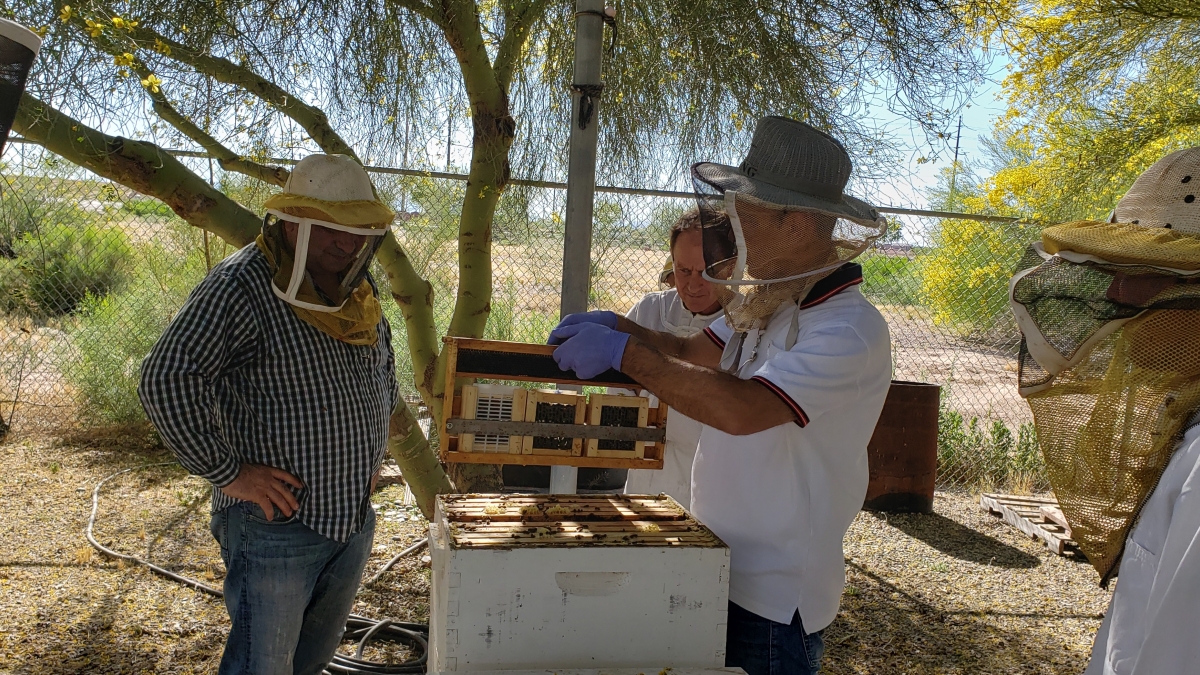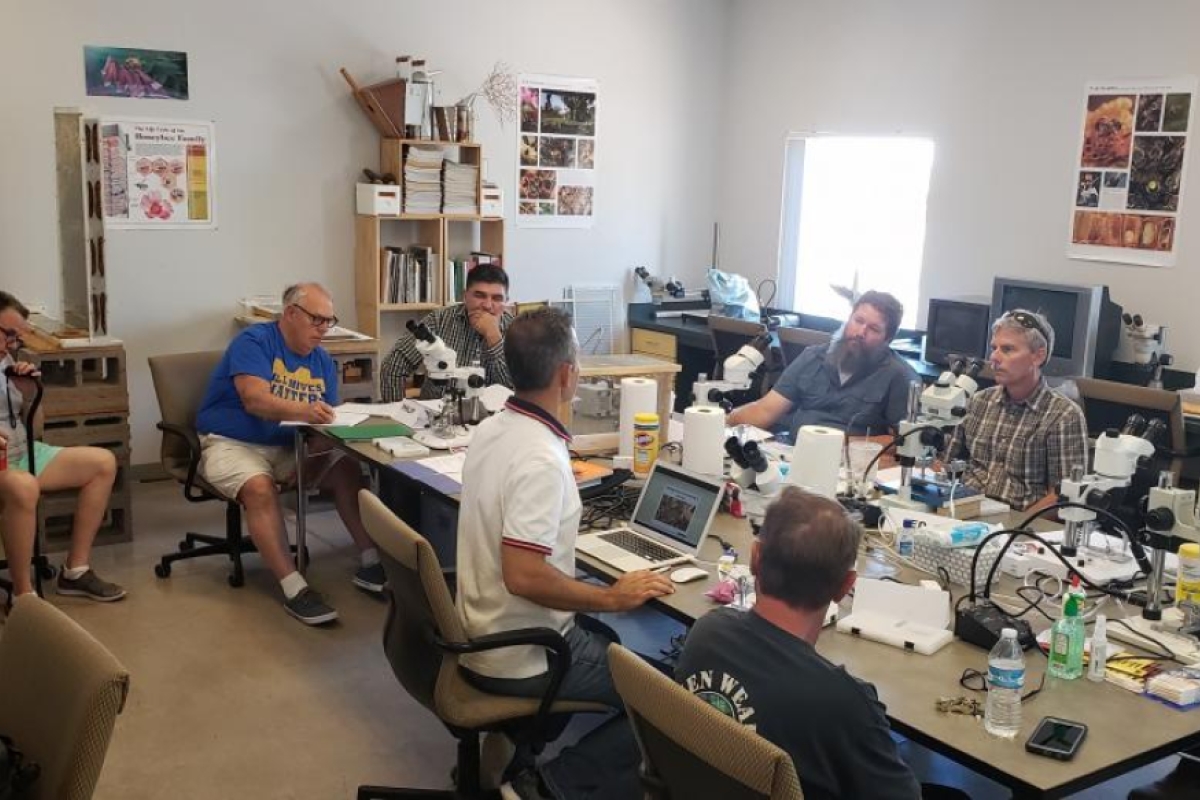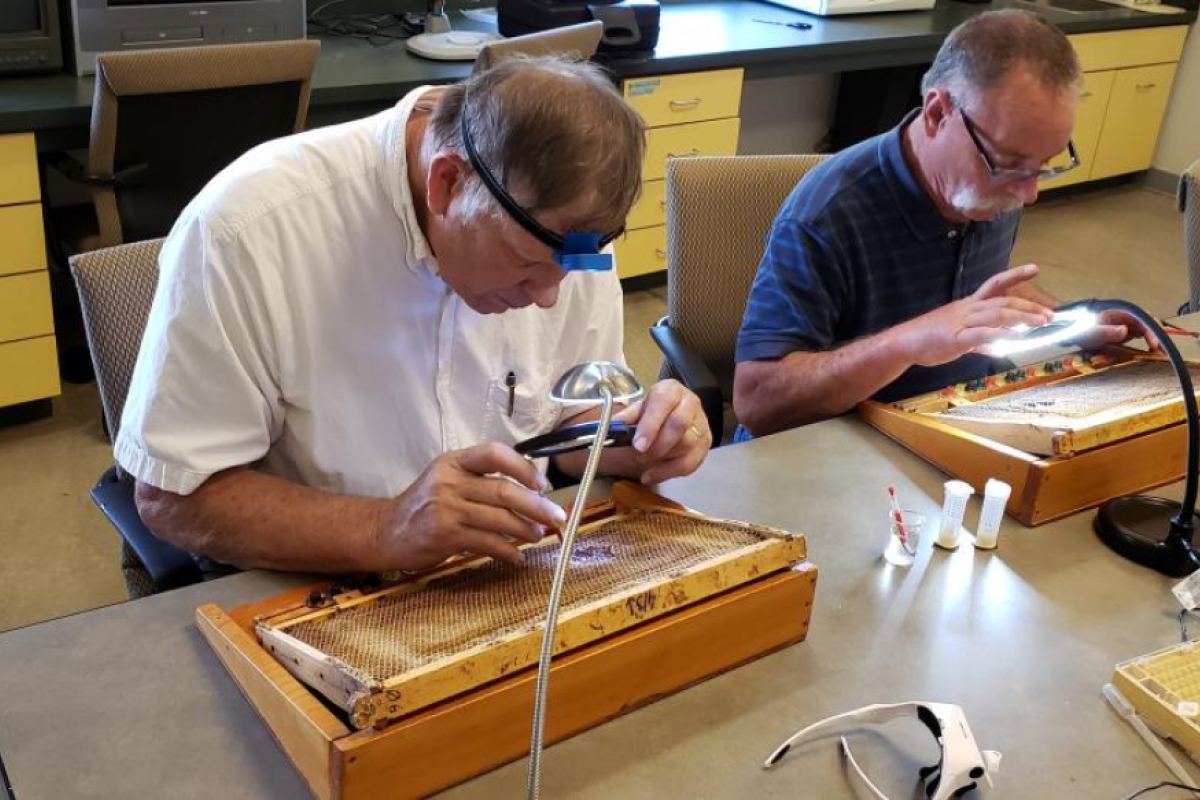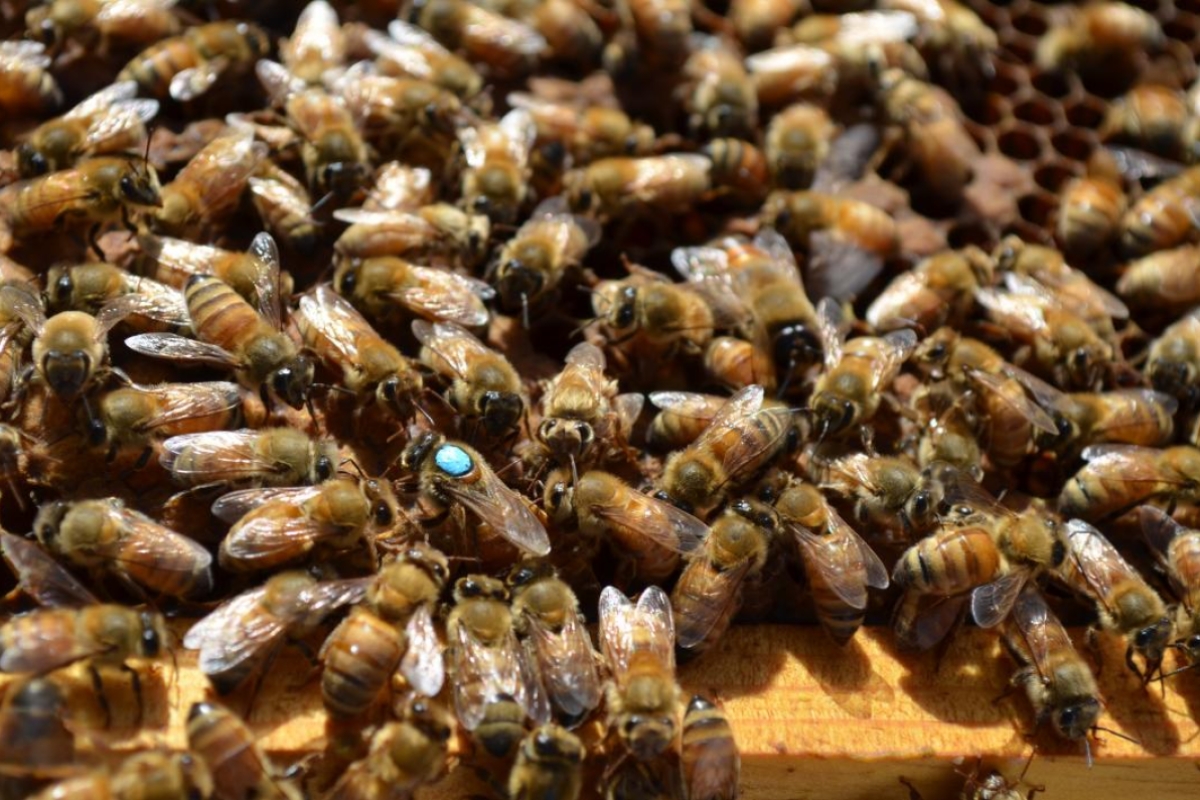ASU offers range of courses for hobby beekeepers

Cahit Ozturk, manager of the Honey Bee Research Lab on ASU's Polytechnic Campus, explains how to care for a colony during a beekeeping course. Several one- and two-day courses, from beginner to advanced, are offered this fall. Photo courtesy Cahit Ozturk/ASU
Honeybees serve as pollinators for the majority of the world’s crops, and their global decline threatens the world’s food supply.
However, hobby beekeepers have been helping to combat this danger by installing hives in their backyards. According to “Bee Culture” magazine, there are now more than 120,000 hobby beekeepers and a 3% rise in honeybee colonies in the United States.
There are lots of factors to consider before starting a bee colony and lots to learn once you have it going. So, Arizona State University offers several continuing professional education courses on hobby beekeeping at the Honey Bee Research Lab on the Polytechnic campus, led by the School of Life Sciences manager of the facility, Cahit Ozturk.
The classes, which are one day for introductory classes and two days for advanced classes, are held on weekends during September and October and offer students a range of topics as well as the opportunity to take advantage of the equipment at one of the largest bee laboratories in the U.S.
“We have a really good research environment here, so when it’s empty, I say we are wasting our resources,” Ozturk said. “We should share this with other people.”
For those with no experience, Ozturk offers introduction to beekeeping and hobby beekeeping courses that teach the basics: how to start, where to get your colony, when to start, how to check for diseases and parasites, how to harvest your honey and how to take care of your colonies.
More experienced beekeepers can take advantage of the advanced classes, such as instrumental insemination of queen bees, royal jelly production and queen rearing.
One of the biggest concerns of hobby beekeepers, especially in the south, is that their queens can breed with Africanized bees, making them more aggressive and difficult to handle.
“You need to change your queens every one or two years because young females lay more eggs and keep the colonies strong and productive,” Ozturk said. “Otherwise, they will change the queen on their own and mate in flight, and we can’t control that. Africanized bees are good pollinators and producers, but they are very aggressive. We have very gentle Italian bees here, but the only way to keep those breeding lines pure is to control the mating.”
However, inseminating a bee can be difficult and requires special, expensive equipment. Ozturk said that before beekeepers invest in this equipment, they want to be sure they can use it properly. Because of this, Ozturk invested personal funds in purchasing equipment for the advanced classes, allowing students to learn the skills and test the equipment before buying their own.
Of the students who took the class last semester, nearly half left with an inseminated queen to add to their colony.
“Whether they were hobbyist or commercial beekeepers, Dr. Ozturk’s teaching method was well in tune with all of the people in the class," said Ed Russell, who traveled from the Florida Keys to take the course. "He provided assistance and instruction at the level needed for all and sincerely wanted you to leave his course having learned the techniques and skill necessary to be successful at instrumental insemination. After the two days were over, Dr. Ozturk emphasized that he was available anytime to answer questions and provide assistance. I’ve never attended an ASU course before, but I do feel like I’m part of an ASU family now.”
Visit ASU Beekeeping Courses for more information.
Broadening beekeeping education: Courses offered fall 2019
Queen Rearing
When: Sept. 28-29
Who: Hobby beekeepers with more than one year of experience.
What: Learn to graft larvae for queen rearing, handle virgin and mated queens, mark and introduce queen to colony and basic beekeeping techniques.
Cost: $200.
Instrumental Insemination of Queen Bees
When: Oct. 5-6
Who: Experienced beekeepers and researchers. Limited equipment available. Must provide own equipment or reserve equipment in advance.
What: Learn how to use the tools of instrumental insemination, rear queens and drones, collect semen from drones, insemination techniques and evaluate success of insemination.
Cost: $300
Introduction to Beekeeping
When: Oct. 12
Who: Anyone interested in starting beekeeping.
What: Learn basic honeybee biology, how to start and maintain a honeybee colony and how to address common challenges for beekeepers.
Cost: $50
Royal Jelly Production
When: Oct. 26-27
Who: Hobby beekeepers with more than one year of experience.
What: Learn how to graft larvae for royal jelly production, use plastic and wax queen cells, prepare queen cells for royal jelly production and harvest and store royal jelly.
Cost: $200
Introduction to Beekeeping
When: Nov. 2-3
Who: Anyone interested in learning about bees or beekeeping.
What: Learn technical beekeeping skills and applying techniques to maintain healthy bee colonies as well as hands-on practice handling and managing a bee colony with the European colonies at the Honey Bee Research Lab.
Cost: $200
More Science and technology

Transforming Arizona’s highways for a smoother drive
Imagine you’re driving down a smooth stretch of road. Your tires have firm traction. There are no potholes you need to swerve to…

The Sun Devil who revolutionized kitty litter
If you have a cat, there’s a good chance you’re benefiting from the work of an Arizona State University alumna. In honor of…

ASU to host 2 new 51 Pegasi b Fellows, cementing leadership in exoplanet research
Arizona State University continues its rapid rise in planetary astronomy, welcoming two new 51 Pegasi b Fellows to its exoplanet…




